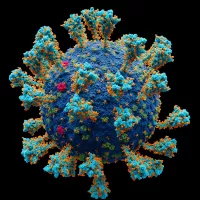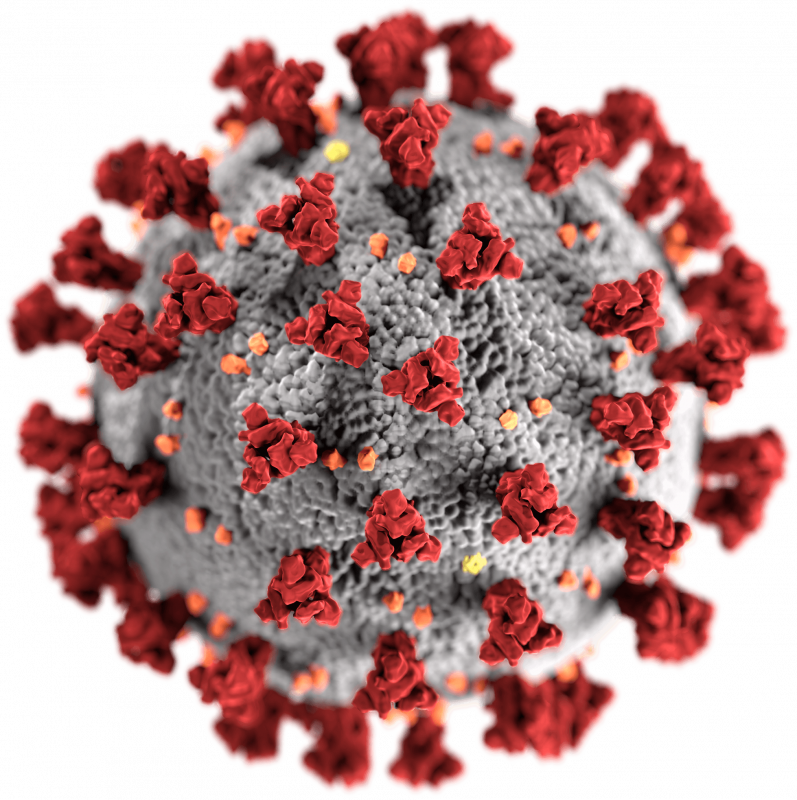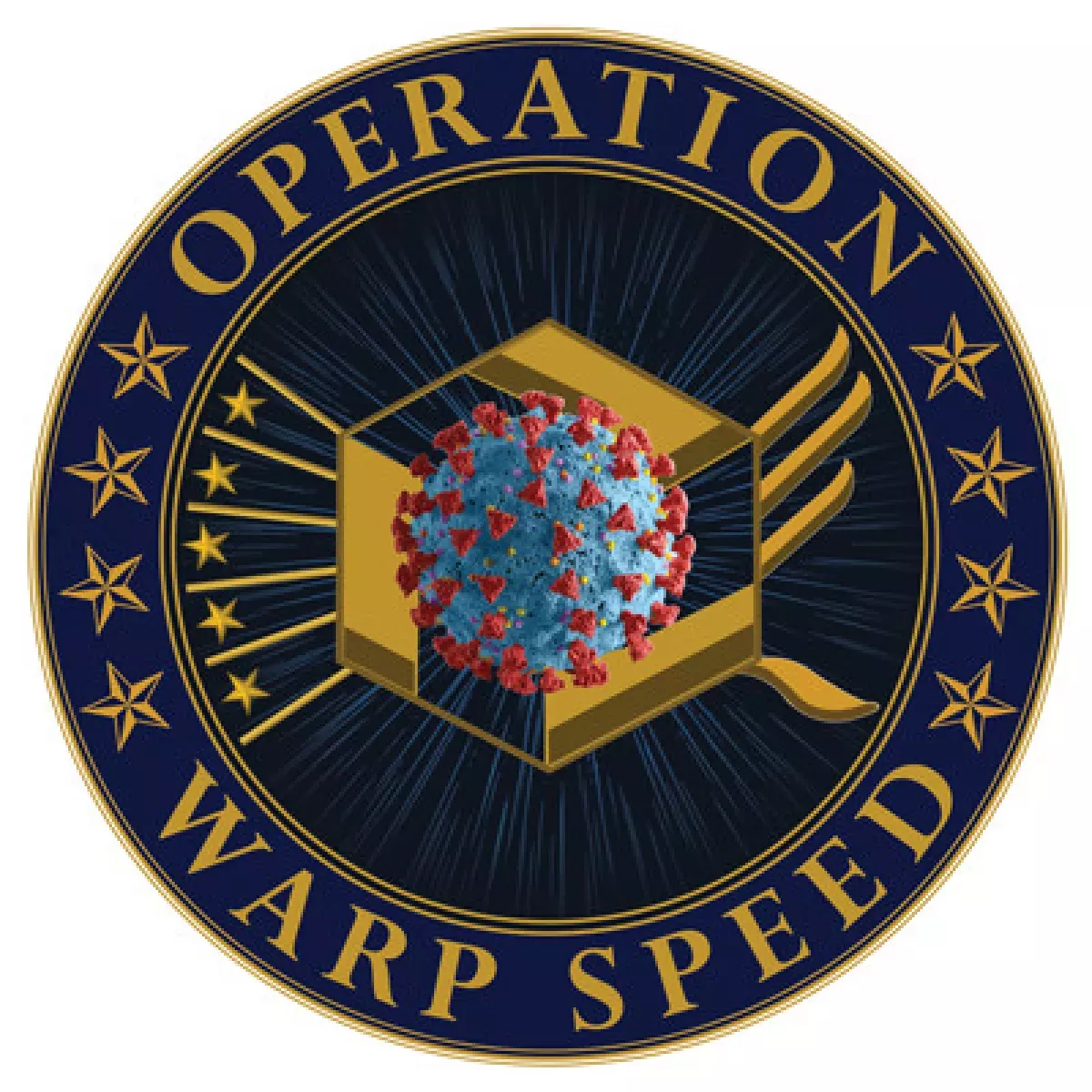Operation Warp Speed was a US government public-private partnership launched in 2020 to accelerate the development, manufacturing, and distribution of COVID-19 vaccines, therapeutics, and diagnostics. Announced in May 2020, it was initially led by Moncef Slaoui and later by David A. Kessler. In February 2021, its responsibilities were transferred to the White House COVID-19 Response Team.
January 2020: BioNTech Project Lightspeed Started
In mid-January 2020, BioNTech's "Project Lightspeed" began at its laboratories in Mainz, Germany, shortly after the SARS-Cov-2 genetic sequence was made public. This project aimed to develop a novel mRNA technology for a COVID-19 vaccine.
March 27, 2020: CARES Act Funding for Operation Warp Speed
On March 27, 2020, the United States Congress passed the CARES Act (Coronavirus Aid, Relief, and Economic Security), which initially provided about $10 billion in funding for Operation Warp Speed.
April 22, 2020: Rick Bright Reassigned
On or about April 22, 2020, Rick Bright, the BARDA director, was reassigned following his resistance to efforts to fund potentially dangerous drugs promoted by those with political connections.
April 29, 2020: First News Report of Operation Warp Speed
On April 29, 2020, the first news report of Operation Warp Speed, a public-private partnership by the United States government, was released. The program aimed to accelerate the development, manufacturing, and distribution of COVID-19 vaccines, therapeutics, and diagnostics.
May 15, 2020: Official Announcement of Operation Warp Speed
On May 15, 2020, Operation Warp Speed was officially announced. The program was designed to facilitate and accelerate the development, manufacturing, and distribution of COVID-19 vaccines, therapeutics, and diagnostics.
May 2020: Operation Warp Speed Budget
Although initially budgeted by Congress for about $10 billion in May 2020, Operation Warp Speed had spent $12.4 billion by mid-December on vaccine developers for the combined costs of R&D and pre-approval manufacturing for millions of vaccine doses.
May 2020: Moncef Slaoui Headed Operation Warp Speed
In May 2020, Moncef Slaoui was appointed to head Operation Warp Speed. He remained in this role until January 2021.
May 2020: U.S. Pays for AstraZeneca Vaccine
In May 2020, the U.S. paid US$1 billion to receive 300 million doses of the University of Oxford-AstraZeneca vaccine for American use.
June 30, 2020: FDA Sets Vaccine Effectiveness Standard
On June 30, 2020, the Food and Drug Administration announced that a COVID-19 vaccine would need to be at least 50% effective in diminishing the severity of COVID-19 symptoms to obtain regulatory and marketing approval.
July 2020: Pfizer Joins Warp Speed Program
Pfizer joined the Warp Speed program in July 2020, and signed a $1.95 billion contract to be paid out when the vaccine would be FDA approved, and included an initial order of 100 million vaccines.
July 22, 2020: U.S. Government Orders Vaccine Doses from Pfizer
On July 22, 2020, the U.S. government placed a conditional advance-purchase order of $2 billion with Pfizer to manufacture 100 million doses of a COVID-19 vaccine, with an option for 500 million more.
August 2020: Companies Chosen for Vaccine Funding
As of August 2020, eight companies were chosen for funding of some $11 billion to expedite development and preparation for manufacturing their respective vaccine candidates.
August 2020: Class Action Lawsuit Filed Against Vaxart
In August 2020, a class action lawsuit was filed against Vaxart in Northern California U.S. District Court for alleged securities fraud, related to Vaxart executives enriching themselves by selling shares timed to positive news on vaccine development during mid-2020.
September 2020: Concerns About Vaccine Hesitancy
A September 2020 survey found that half of American adults surveyed said they would not accept a vaccination if it was available at that time, and three-quarters expressed concerns about the pace of the process and fears that a vaccine might be confirmed before its safety and effectiveness are fully understood. There was concern that the name and intended shortened timeline of Operation Warp Speed could encourage vaccine hesitancy.
September 2020: BioNTech Receives Funding from German Government
In September 2020, BioNTech received €375 million (US$445 million) from the government of Germany to accelerate the development and production capacity of the Pfizer–BioNTech COVID-19 vaccine.
October 2020: Spending on Monoclonal Antibody Treatments vs. Vaccines
As of October 2020, Operation Warp Speed had spent less than $1 billion to support the development and manufacturing of three monoclonal antibody treatments, versus almost $10 billion on six vaccines.
October 2020: Operation Warp Speed Funding Increased
By October 2020, Operation Warp Speed's funding had increased to about $18 billion, allocated through BARDA (Biomedical Advanced Research and Development Authority).
October 2020: Prediction of Available Vaccine Doses by End of Year
In October 2020, Alex Azar, the United States Secretary of Health and Human Services at the time, predicted a hundred million available vaccine doses by the end of the year. The Trump administration later reduced the goal to twenty million doses.
December 2, 2020: United Kingdom Authorizes Vaccine
On December 2, 2020, the United Kingdom was the first country to authorize the vaccine on an emergency basis.
December 8, 2020: Executive Order Mandating Vaccine Sales to the US First
On December 8, 2020, President Trump signed an executive order mandating that companies sell vaccines to the US before selling to any other countries.
December 11, 2020: Emergency Use Authorization Issued in the United States
On December 11, 2020, emergency use authorization was issued in the United States for a COVID-19 vaccine, marking a critical step in the vaccine's distribution and availability.
December 2020: Emergency Use Authorization for Pfizer and Moderna Vaccines
In December 2020, effective vaccines made by BioNTech in Germany and Pfizer and Moderna were given an emergency use authorization by the FDA, establishing an exceptionally fast development and approval timeline for vaccines granted emergency marketing.
December 23, 2020: Trump Administration Orders Additional Doses from Pfizer
On December 23, 2020, the Trump administration announced that they had ordered another 100 million doses from Pfizer.
2020: Criticism of Unrealistic Goals
The goals of the project – to develop, manufacture, and distribute hundreds of millions of COVID-19 vaccine doses by the end of 2020 – were initially criticized as being unrealistic.
January 6, 2021: CDC Reports Vaccine Distribution and Administration Numbers
As of January 6, 2021, the CDC reported 17,288,950 doses distributed, but only 5,306,797 actually administered to a person. Of those, 3,416,875 were distributed and 511,635 administered through the Federal Pharmacy Partnership.
January 2021: Goal to Produce and Deliver 300 Million Vaccine Doses
According to the Department of Health and Human Services' fact sheet, the main stated goal of Operation Warp Speed was to produce and deliver 300 million doses of safe and effective vaccines with the initial doses available by January 2021.
January 2021: Moncef Slaoui Resigned from Project
At the request of the incoming Biden administration, Moncef Slaoui resigned from the Operation Warp Speed project in early January 2021.
January 2021: David A. Kessler Headed Operation Warp Speed
In January 2021, David A. Kessler took over from Moncef Slaoui as the head of Operation Warp Speed, serving until February 2021.
January 2021: Restructure and Renaming Expected Under Biden Administration
In January 2021, White House press secretary Jen Psaki announced that Operation Warp Speed was expected to undergo a restructure and renaming under the Biden administration. Also in January 2021, Dr. Moncef Slaoui was told not to use the name Operation Warp Speed anymore.
January 31, 2021: Operation Warp Speed Transferred to Biden Administration
By January 31, 2021, when Operation Warp Speed was being transferred to the Biden Administration, 63.7 million doses had been delivered of a total of 200 million doses that Pfizer and Moderna were contracted to provide by the end of March 2021.
February 2021: Transition to White House COVID-19 Response Team
At the end of February 2021, Operation Warp Speed transitioned into the White House COVID-19 Response Team under the Biden Administration.
February 2021: Operation Warp Speed responsibilities transferred to the White House COVID-19 Response Team
At the end of February 2021, responsibilities of Operation Warp Speed were transferred into the White House COVID-19 Response Team.
February 2021: Operation Warp Speed Transferred to White House COVID-19 Response Team
At the end of February 2021, the responsibilities of Operation Warp Speed were transferred to the White House COVID-19 Response Team, marking a shift in leadership and oversight.
February 2021: United States Pledged to Donate Vaccine Surplus
In February 2021, after Operation Warp Speed was transitioned to the White House COVID-19 Response Team, the United States pledged to donate any vaccine surplus out of concern for vaccine-poor regions, such as Africa.
March 2021: Pfizer and Moderna Contracted to provide 200 million doses
By January 31, 2021, when Operation Warp Speed was being transferred to the Biden Administration, 63.7 million doses had been delivered of a total of 200 million doses that Pfizer and Moderna were contracted to provide by the end of March 2021.
Mentioned in this timeline

The White House located at Pennsylvania Avenue NW in Washington...
Pfizer Inc is a multinational pharmaceutical and biotechnology corporation headquartered...

Coronaviruses are a family of RNA viruses affecting mammals and...
Germany officially the Federal Republic of Germany is a nation...

News encompasses information about current events disseminated through various media...

COVID- vaccines are designed to provide immunity against SARS-CoV- the...
Trending

20 minutes ago Cameron Boozer: Duke Forward, Elite Numbers, and Wooden Award Favorite

20 minutes ago Josiah Harrell's Sensational UFC Debut After Rare Brain Disease Diagnosis: A Houston Story

21 minutes ago Rajah Caruth shines at JR Motorsports; Mayer takes pole; Mears avoids crash.

21 minutes ago Anthony Black scores 20 points in Magic's Thursday's victory, Desmond Bane contributes.

21 minutes ago Yaxel Lendeborg's life story, Michigan rise, and draft prospects are revealed.
1 hour ago Alabama Basketball Faces LSU: A Crucial Road Matchup and Maturity Test Looms
Popular

Jesse Jackson is an American civil rights activist politician and...

Barack Obama the th U S President - was the...

Ken Paxton is an American politician and lawyer serving as...

Bernie Sanders is a prominent American politician currently serving as...
Randall Adam Fine is an American politician a Republican who...

Michael Joseph Jackson the King of Pop was a highly...
